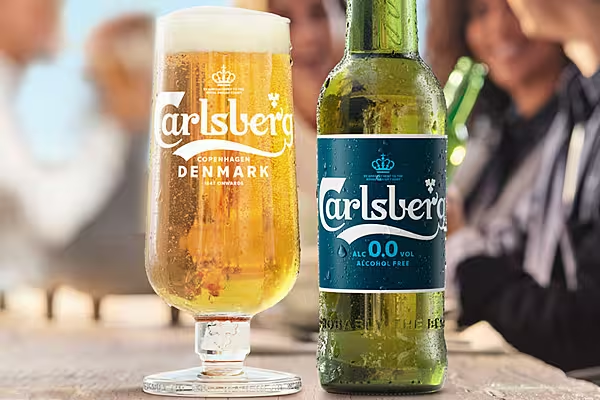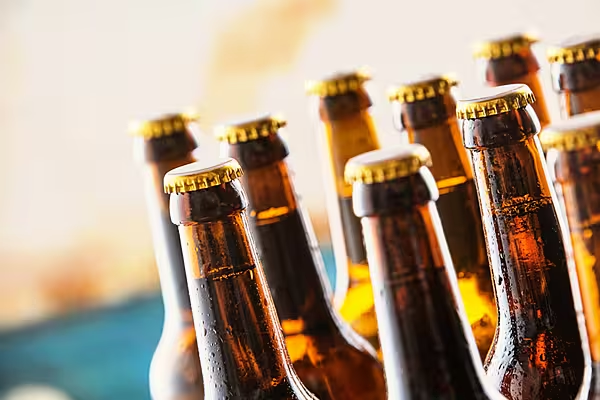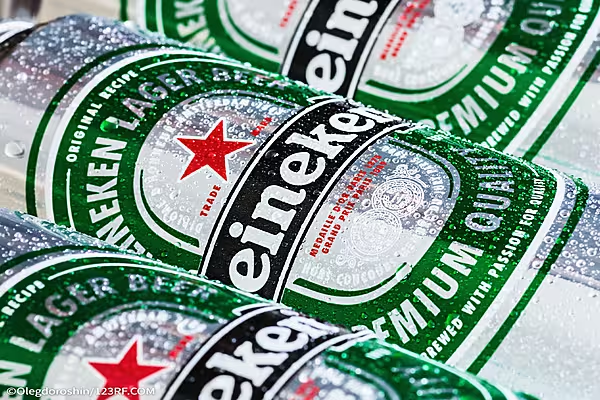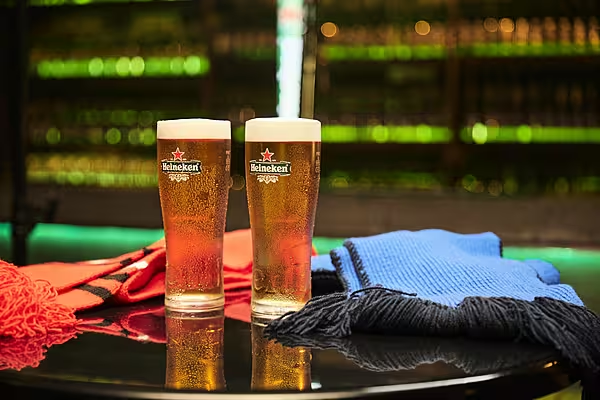Danish brewer Carlsberg noted on Wednesday that it had not seen rising living costs impacting beer sales, but that higher raw-material prices would pressure earnings in the second half of the year.
The world’s third-biggest brewer noted that sales in the second quarter were boosted by the reopening of bars and restaurants in most markets.
“So far, we don’t any see any impact [from rising inflation] in our figures,” Cees ’t Hart, chief executive, said in a conference call.
“When people spend less on holidays, cars, or a new fridge, they are at least willing to have a premium beer at the end of the day,” he said.
The company, which also produces brands such as Kronenbourg 1664, Tuborg and Somersby, lifted its profit growth forecast last week, on the back of strong performances in Europe and Asia.
Growth
The company’s volumes grew organically, by 8.7%, in the quarter, with sales reaching 20.51 billion Danish crowns ($2.81 billion), compared to the 21.6 billion forecast by analysts in a poll compiled by the company.
“We are now well ahead of pre-pandemic levels, however, we see dark clouds on the horizon,” ’t Hart said. We will see the full effect of rising input costs in the second half of the year.”
The company expects ‘high single-digit percentage’ organic profit growth for the full year – much below the 32% growth that it achieved in the first six months of the year.
Heineken
Rival Heineken noted this month that consumers bought more beer in the first half of the year, despite the cost-of-living pressures, but it expected rising costs to squeeze profit margins next year.
Shares in Carlsberg traded 1.4% higher at 07.26 GMT. The stock’s value has increased by 25% since a trough in early March.
Carlsberg, which has eight breweries and 8,400 employees in Russia, noted in March that it would sell its business in the country, joining an exodus of Western companies since Russia’s invasion of Ukraine.
The sale would most likely be concluded 12 months after it announced the plan to divest, ’t Hart said.
On Wednesday, the company reported a write-down of its Russian business, of 9.6 billion crowns, resulting in a net loss for the first half of the year, of 5.28 billion crowns.
Read More: Carlsberg Lifts 2022 Growth Outlook
News by Reuters edited by Donna Ahern, Checkout. For more Drinks stories click here. Click subscribe to sign up for the Checkout print edition.









